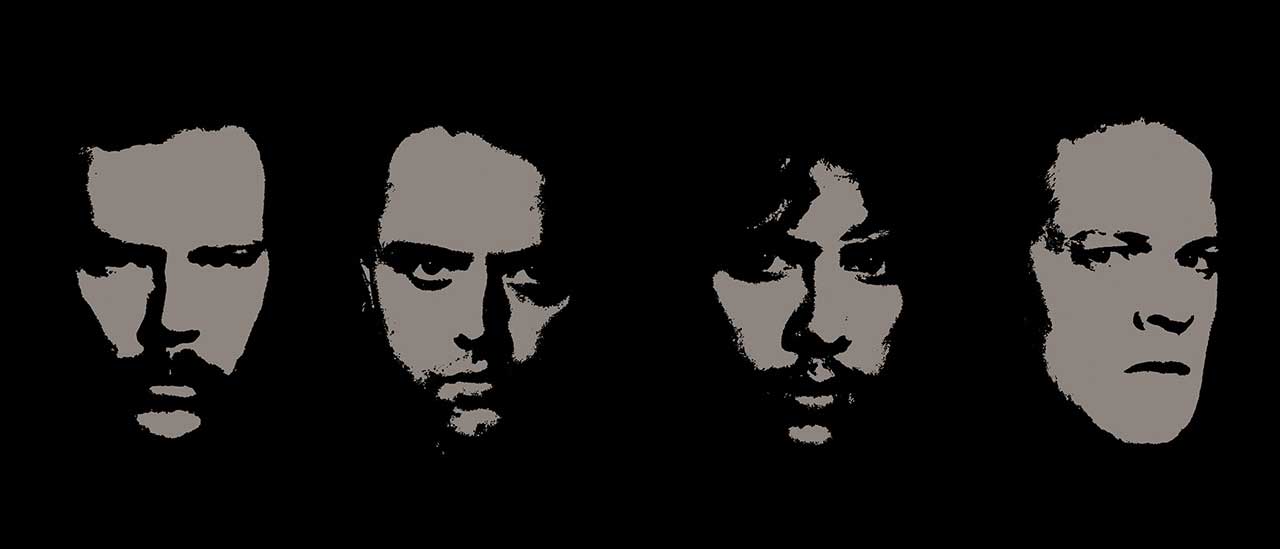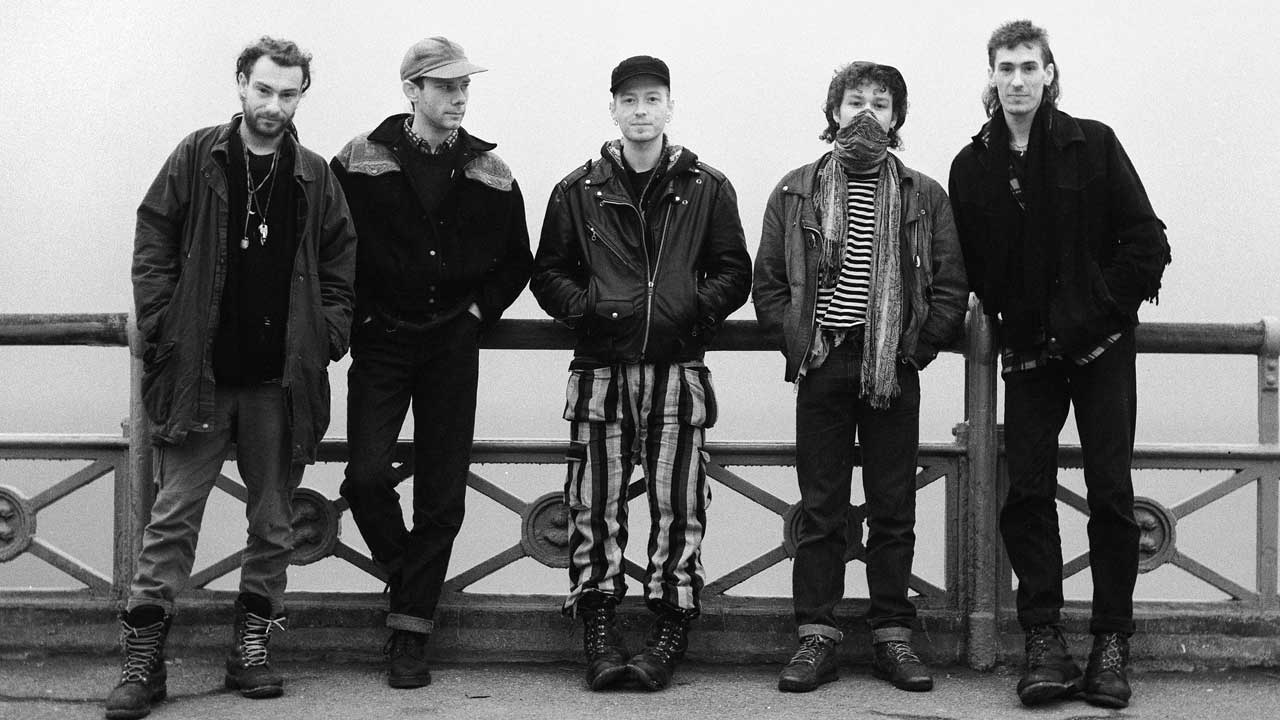You can trust Louder
It was the blockbuster breakthrough album that transformed Metallica into the Mount Rushmore of heavy rock, a monumental career peak that the black-clad post-thrash overlords would arguably never reach again. Much like Nirvana’s Nevermind, released just a few weeks later in 1991, Metallica’s self-titled fifth album scored huge crossover success and became a major cultural milestone. Both albums went on to sell more than 30 million copies, reshaping the post-grunge and alt.rock landscape of the dawning decade ahead.
Whether as maximalist showmen or hard-nosed businessmen, Metallica have little interest in half-measures. Which might explain why this costly, bloated, deluxe 30th-anniversary box set includes 14 CDs, six slabs of vinyl, six DVDs, a 120-page photo-book and tons of souvenir gubbins. Blistering barnacles, there’s more than 24 hours of music to plough through here before we even get to the accompanying all-star tribute album.
Has any rock masterpiece in history ever merited this kind of explosively incontinent Wikileaks information dump? Of course not. But does Metallica – aka the Black Album – still sound like a sky-punching, riff-crunching, firebreathing, game-changing landmark in heavy music? Fuck yeah!
Kicking off the band’s long, fractious but fruitful collaboration with Canadian producer Bob Rock, the Black Album was always an immersive, senses wamping audio feast. It now sounds positively palatial in this boomy, dynamic, state-of-the-art remaster.
James Hetfield’s percussive grunts, guttural growls and grainy baritone roars have a cavernous hugeness on stadium blues monsters Sad But True and Holier Than Thou, like a giant fairy-tale ogre about to swallow an entire kindergarten. Meanwhile, drummer Lars Ulrich and lead guitarist Kirk Hammett prove they can still whip up an exhilarating speedthrash frenzy on pummelling metalstorm stompers like The Struggle Within, Through The Never and Don’t Tread On Me.
But the album’s boldest stylistic innovations were its melodic, majestic power ballads. Enter Sandman, a superlative exercise in creeping dread and lingering childhood trauma, remains an evergreen horror-movie classic that transcends hard-rock categories. The Unforgiven, a widescreen western vista carved from sonic granite, borrows its title from Clint Eastwood and its epic melodrama from composer Ennio Morricone.
Best of all is Nothing Else Matters, a waltz-time weepie of intricate acoustic fingerpicking and sombre crooning that builds into a stormy orchestral epic. For fans of Metallica’s introspective side, this symphonic psychodrama is still the band’s peak achievement: their Hotel California, their Stairway To Heaven, their Lick My Love Pump.
Sign up below to get the latest from Classic Rock, plus exclusive special offers, direct to your inbox!
Among the gargantuan haul of previously unreleased off-cuts, band interviews, B-sides and concert recordings here are almost 100 basic ‘riff tape’ snippets and rough work-in-progress demos of Black Album tracks. A handful have an agreeable garage-punk rawness, but most are dull rehearsal-room sketches. That said, a few appealing needles are buried in this vast musical haystack, including a sloppy stab at Lynyrd Skynyrd’s Free Bird, and the lush, all-acoustic ‘elevator version’ of Nothing Else Matters.
Spanning the years 1991 to 1993, the live sets from Wembley, Moscow, Oakland, Sacramento and Mannheim inevitably become repetitive too. But they work as high-energy time capsules of Metallica in their all-conquering prime, especially the thrilling, supercharged versions of older classics like Seek And Destroy, Creeping Death and Master Of Puppets.
A companion release to the box set, The Metallica Blacklist is a new 53-track tribute compilation of Black Album cover versions. Featuring an international guest list of famous fans and fellow artists, this marathon four-disc anthology spans the musical spectrum from metal to country, jazz to hip-hop, folk to electronica.
All profits go to charities chosen by the performers themselves. Inevitably, the big hits attract the most takers, hence no less than 12 reworkings of Nothing Else Matters.
Much media noise has already been generated by Miley Cyrus and her razzle-dazzle orchestral supergroup version featuring Elton John, Yo-Yo Ma, Chad Smith and Metallica’s own Rob Trujullo. But others take a more subtle and elliptical approach, from Phoebe Bridgers with her sublime piano-ballad interpretation, to Chilean singer Mon Laferte’s sizzling Spanish-language translation, and Depeche Mode’s Dave Gahan in shimmering electro-crooner mode.
Predictable guests like Royal Blood, Biffy Clyro and Slipknot’s Corey Tayor deliver disappointingly straight, dutifully respectful covers. Fortunately, artists less bound by metal convention fare better, from St Vincent’s glam-funk disco-rock version of Sad But True to Moses Sumney’s airy soul-pop take on The Unforgiven. The album’s less celebrated deep cuts also encourage adventurous reworkings, as Bristol emo-punks Idles demonstrate with their clobbering, clamouring, kinetic reboot of The God That Failed.
Meanwhile, My Friend Of Misery is salvaged from forgettable second-division status by some fresh takes, including a sassy glam-pop makeover by French chanteuse Izïa and a luscious, head-spinning jazz rearrangement by tenor sax supremo Kamasi Washington. Magnificent collisions and unexpected connections abound.
Although the Black Album remains a rock masterpiece for the ages, only the most deranged Metallica obsessive will want to hear the vast bulk of extra material in this box set more than once. For casual fans with broader tastes, The Metallica Blacklist is a much richer testament to the longevity and versatility of these songs, and certainly a better use of your money.
Stephen Dalton has been writing about all things rock for more than 30 years, starting in the late Eighties at the New Musical Express (RIP) when it was still an annoyingly pompous analogue weekly paper printed on dead trees and sold in actual physical shops. For the last decade or so he has been a regular contributor to Classic Rock magazine. He has also written about music and film for Uncut, Vox, Prog, The Quietus, Electronic Sound, Rolling Stone, The Times, The London Evening Standard, Wallpaper, The Film Verdict, Sight and Sound, The Hollywood Reporter and others, including some even more disreputable publications.


